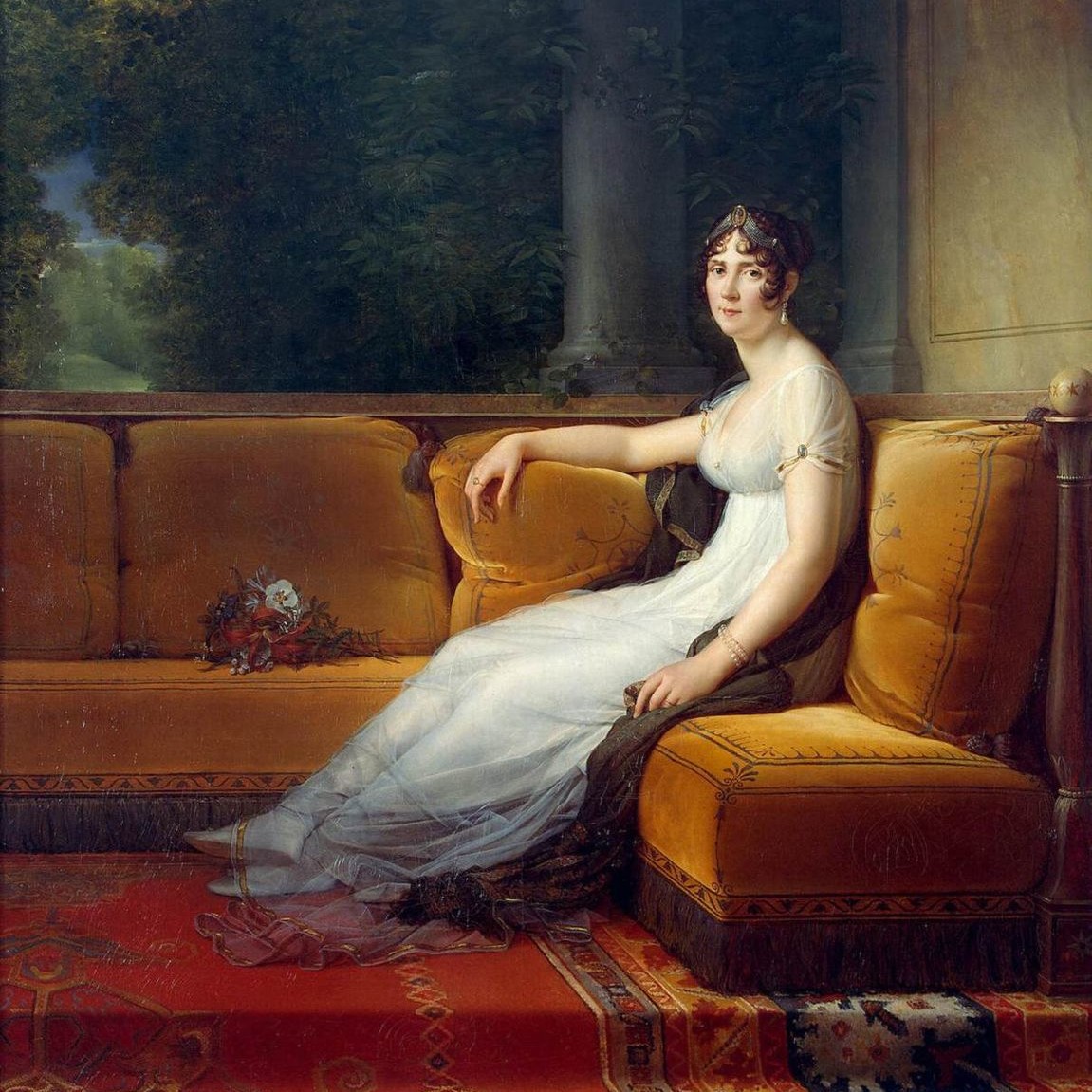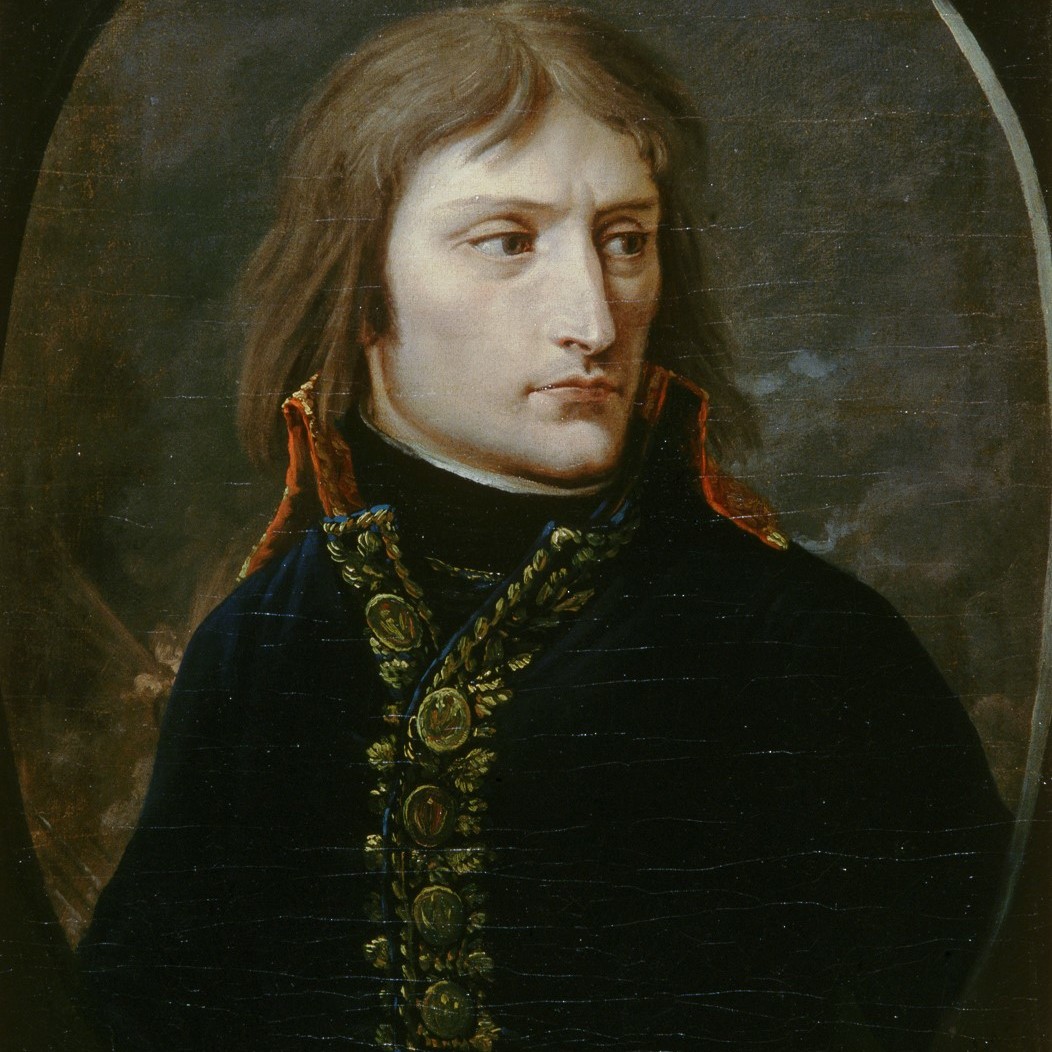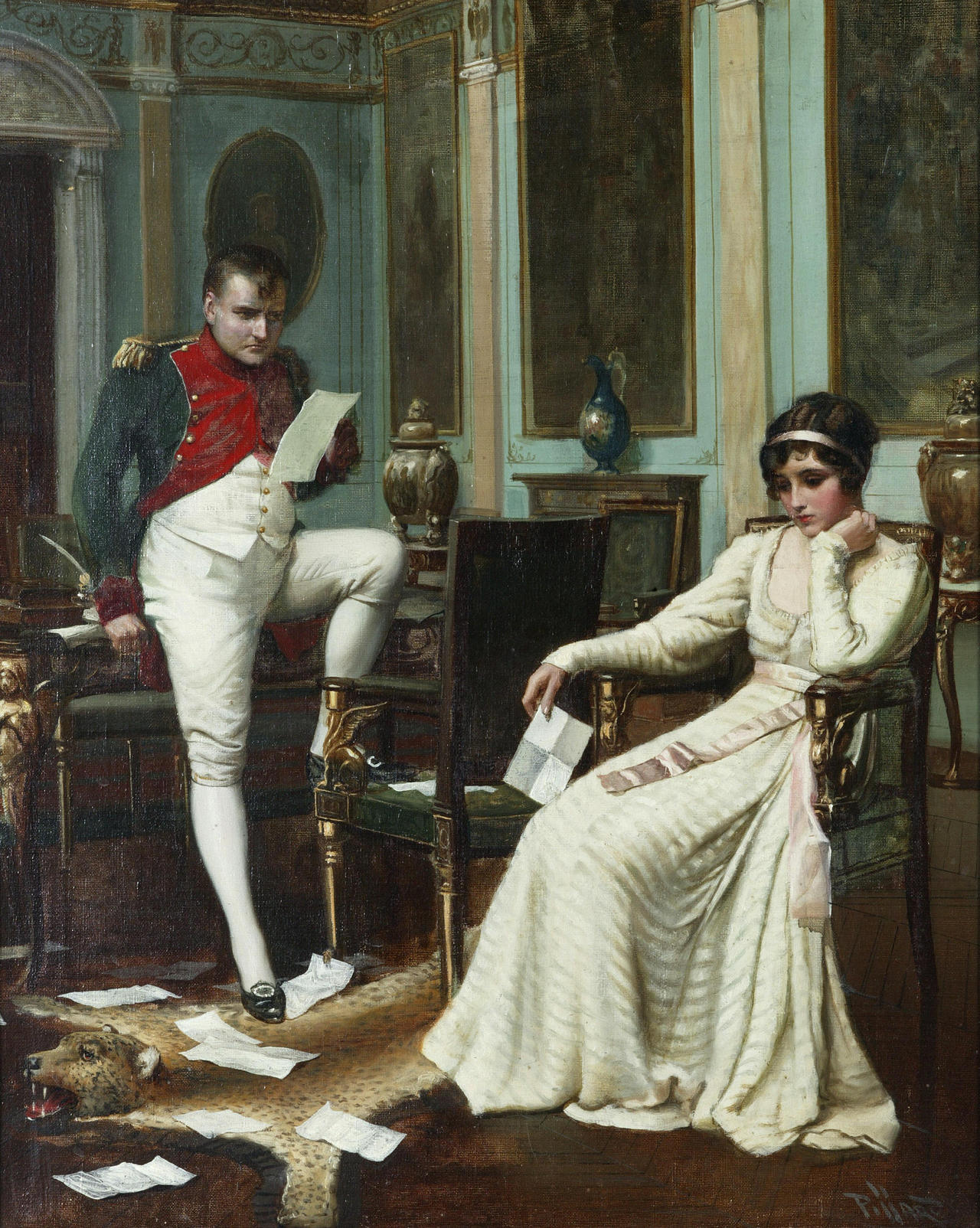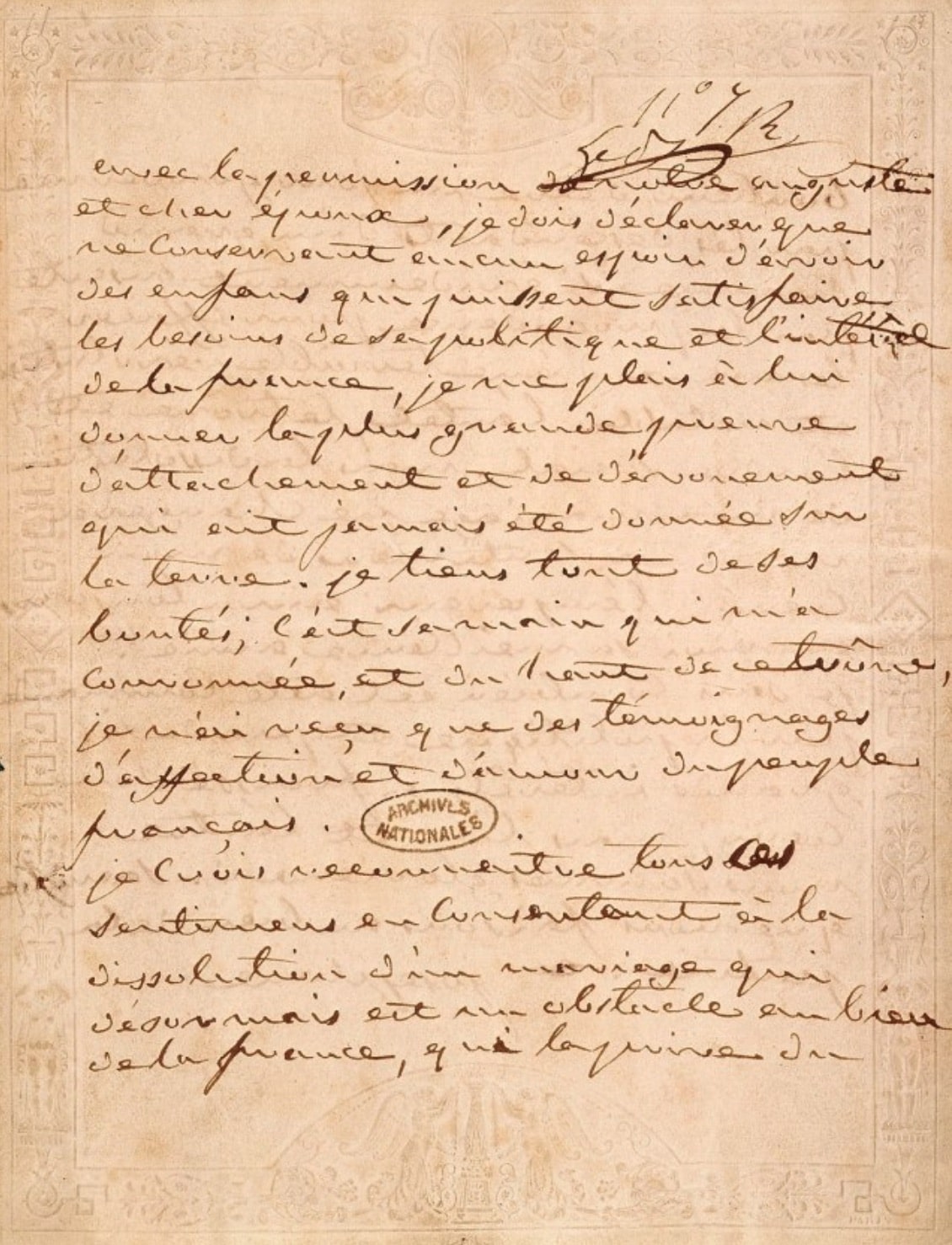The mythical couple formed by Napoleon and Joséphine still arouses curiosity today for these two characters seem absolutely opposite. This couple, which initially mixed fire and ice, was inconceivable except to be strangely ordinary ... in our contemporary eyes. Story of a modern couple.
A couple in contradiction in every way
Joséphine de Beauharnais (1763 – 1814) met Napoleon for the first time (1769 – 1821) in 1795. She then reigned on the Directory alongside other young and elegant women – such as the spicy Madame Tallien – from whom she distinguished herself in being by far their eldest. Joséphine was 32 years old, widow and mother of two children. Her nobility was insignificant at best, while her debts enjoyed far more prestige than her name. With Napoleon, she pretended to be rich and he succumbed for a time to the charms of this deliquescent aristocracy; not enough, however, not to have the real state of her sweetheart’s finances checked. But whatever, this young man to whom Paul Barras (1755 – 1829) promised a great future, had to recognize that this marriage would be financially more favorable to him than to her: on March 8th, 1796, the marriage contract established indeed that Joséphine brought to the household her annual rent of 25,000 francs while Napoléon Bonaparte constituted for the moment a meager pension of 1,500 francs in case of widowhood… Napoleon was madly in love with her Josephine, and he could no longer bear the idea of marrying another woman than her. This state of mind was unfortunately not shared by this elegant woman. Her heart will not turned upside down for this man who was neither of her kind nor her spirit. What decided her was precisely what separated them from the start: for her, wedding was – as under the Ancien Regime – a matter of convenience and interests mixed, but in no case a matter of feelings! Napoleon, meanwhile, did not care about this separation of appearances and aspired to a marriage based on shared love, a very modern idea in this high society where the codes of a barely sleepy aristocracy still prevailed. When Josephine finally consented to this union, it was above all in order to preserve her worldly existence and the safety of her children. This glorious general brought her countenance and security at a time when Terror still haunted everyone. She thought by this marriage to preserve frivolities and worldliness, temporary gallantries and to ensure the security of the home. He imagined himself a fulfilled and loved husband of a wife who would take care of maintaining a respectable and happy home. Two worlds clashed without one figuring it out in the other.
Their respective correspondence is eloquent in this case. When Napoleon was moved “I wake up full of you”, Josephine complained to one of her friends “I find myself in a state of lukewarmness that I dislike and that the devotees find more vexing than anything”. Surely, Joséphine’s experience in the field of gallantry did not reveal anything of this lukewarmness to her husband. However, once he left for Italy, Madame Bonaparte’s undisguised indifference to the pleas of the general marked Parisian mind. Letters from Italy never dried up and arrived almost every day while responses were scarce and capricious. Tearful, lonely, barely consoled by his victories, how could one not feel all the general’s pain and despair when, impatient to get back (finally!) to her Josephine in Milan, he found the palace empty, the Beauty having eclipsed for enjoy the pleasures of Genoese society. In a heartbreaking letter, we read the general’s resignation:
I arrive in Milan, I rush to your apartment, I left everything to see you, to hug you; … you weren’t there: you run cities with parties; you move away from me when I arrive, you no longer care about your dear Napoleon. A whim made you love him, inconstancy makes you indifferent. Accustomed to dangers, I know the remedy for the troubles and evils of life. The unhappiness I experience is incalculable; I had the right not to count on it. I will be here until 9th. Do not bother ; run pleasures; happiness is for you. The whole world is too happy if you like it, and your husband alone is very, very unhappy.
The image of the uncompromising conqueror and strategist that Europe then discovered is far away here … The gap widened between the two spouses despite the perseverance of a Napoleon who suffered to admit that he was not loved by his wife. Returning from the Egyptian campaign, the threat of divorce hung over the young couple and Josephine measured with horror the damage she had committed. If the situation had nothing in common in this young XIXth century, what is original in our contemporary eyes?
The Bourgeois Understanding
By an ironic reversal of the situation of which life has the secret, it is Joséphine who will henceforth fear that Bonaparte will leave her. The latter having lost all illusions concerning his wife’s feelings towards him, gradually detached himself from her without ever taking away from him the affection that he had for her. If he could not demand mutual love, he nevertheless intended to maintain the tranquility and respectability of his house. These could not be more bourgeois demands for a man soon raised to imperial dignity. The entourage of the couple testified with astonishment to this family life far removed from the royal customs of his predecessors and to which we have always been used: “The Emperor was indeed one of the best husbands I have ever known” testifies Mademoiselle Avrillion (1774 – 1853), first maid of the empress. She continues “when the empress was inconvenienced, he spent with her as long as it was possible for him to steal from imperial matters […] He had a tender friendship for her”. The testimony of Louis Constant (1778 – 1845), the Emperor’s first valet, was no less unexpected “How touching was the agreement of this imperial household! Full of attention, respect, abandonment for Josephine, the Emperor liked to kiss her on the neck, in the face, patting her and calling her “my big beast”. And the “big beast” empress loved to read to her imperial husband in the evening! If the question of the heir was thorny, that of Joséphine’s children wasn’t and, as in a reconstituted family today, Napoleon I tenderly pampered his wife’s children. Hortense and Eugène were constantly at the center of his preoccupations and Bonaparte did not deny this nickname of “Bibiche” uncle which the son of Hortense gave him. Could these children have known a better stepfather? As in all modern households, arguments were inevitable, however. And if Napoleon Bonaparte imposed his will on Europe, he could hardly do so in his own home! Josephine was spending countless, and when her husband finally paid off her debts she had had plenty of time to create new ones. He, attached to order and regularity, succeeding by his genius in winning great battles across the continent, systematically failed to force Josephine to respect her budgets.
Were the domestic concerns of the imperial couple so different from the bourgeois concerns of the same era? If not the size of the house and the expenses, are they even different from ours? To be convinced, let’s add that pets did not escape this bourgeois life. Because the question arose: who will take the dog out? Not for his daily walk as you might think, but from Joséphine’s bed. Designating a frizzling hound (a poodle named Fortuné), Napoleon said to his friend Antoine-Vincent Arnault (1766 – 1834) “You see that gentleman here, he is my rival. He was in possession of Madame’s bed when I married her. I wanted to get it out: useless pretension, I was told that I had to make up my mind to sleep elsewhere or agree to share. » Napoleon knowing the dog unbeatable (an unpleasant irony for the one who won most of his battles) but not eternal, he took his pain in patience and the minute following the death of Fortuné, he strongly defended that a successor be designated. Wasting of time because Joséphine quickly went beyond her husband’s ban and acquired a pug. Furious, the Emperor then urged his cook to acquire a terrifying (and surely hungry) great mastiff in the hope that the latter would make his meal from the unwanted doggie.
Infidelities and Divorce
Joséphine at the start of their relationship and during their first years of wedding deceived Napoleon with a casualness that marked the minds, to the point that Barras advised her to be careful in her relations with Charles Hippolyte (1773 – 1837). Then she was the one who feared her husband’s infidelities. A foreboding rightly worried her during Bonaparte’s stay in Poland in 1807. The Emperor and Mrs. Walewska (1786 – 1817) fell sincerely and lastingly in love and their idyll gave birth to the first son of the Emperor in 1810, indirectly proving the inability of Josephine to give him an heir and causing, regretfully, the initiation of divorce proceedings. The Emperor was therefore not loyal to Josephine either, but he took great care to ensure that his wife knew nothing about his affairs. An attitude far removed from the Europeans kings of that time who maintained and sometimes allowed official wives and mistresses to tear each others to pieces. Always Bonaparte wanted his entourage and his family to be happy and not worried, a concern still marked by a bourgeois mind. In this new society oscillating between the customs of the Ancien Regime and a post-revolutionary modernity, Napoleon and Josephine formed a finally united couple who knew how to dominate the military, political and worldly scenes each by their talent: when he “wins battles, Joséphine wins hearts ”.
Do you like this article?
Like Bonaparte, you do not want to be disturbed for no reason. Our newsletter will be discreet, while allowing you to discover stories and anecdotes sometimes little known to the general public.
Congratulations!
You are now registered to our Newsletter.
Long after their divorce, relations between Napoleon and Josephine remained marked by tenderness and sincere friendship. Bonaparte’s visits to Josephine at Malmaison were frequent. He always ensured that she lacked nothing (despite her bad habit of maintaining debts) and kept her title of Empress despite their divorce. She still cared for him, sought and facilitated his marriage to Marie-Louise of Austria (1791 – 1847) and sincerely congratulated her ex-husband on the birth of the King of Rome. Throughout his life and again in Saint Helena, the Emperor will fondly recall his memories of Josephine. If history has paid little attention to Napoleon’s second wedding, this is no doubt due to this singular relationship which in the 19th century was certainly as unusual as it seems, to our contemporary eyes, strangely ordinary …
Marielle Brie
Marielle Brie est historienne de l’art pour le marché de l’art et de l’antiquité et auteur du blog « Objets d’Art & d'Histoire ».



